Master of Science in Nursing – Forensic Nursing
Learn essential forensic nursing skills with a specialized MSN.
Forensic nursing is the practice in which health care and legal systems intersect. Aspen’s MSN program with a Forensic Nursing specialization helps nurses understand and adapt to advancements in new forensic research and techniques. Forensic nurses have a unique body of knowledge, which serves a critical role. For instance, a forensic nurse might care for an assault victim, provide health care in a correctional facility or provide forensic testimony in court. To ensure accurate results, nurses must be unbiased, thorough and diligent in their work at crime scenes, in the lab, and in the courtroom. Education is a crucial component to staying up to date in the industry. The MSN Forensic Nursing program equips students with comprehensive forensic nursing knowledge; organizational skills necessary for writing reports, taking photos, and collecting evidence; critical thinking skills; and strategies to collect, record, and preserve essential evidence.
What Can You Do With An MSN In Forensic Nursing?
Aspen MSN Forensic Nursing graduates can:
- Apply forensic nursing science foundational principles to public or legal proceedings
- Work with law enforcement for public good
- Provide specialized care and services to those who have experienced violence or trauma
- Use clues on victims’ bodies in an ER or elsewhere to help determine what may have happened
- Document clues to aid in a legal case or investigation
- Serve as forensic nursing leaders
The Master of Science in Nursing program at Aspen University is accredited by the Commission on Collegiate Nursing Education.
Enjoy Flexibility– 12 online courses with program start dates every 2 weeks
Choose Where You Learn– Online courses with a local practicum
Affordable Monthly Payments
Focus on Your Passion– Choose your practicum project
Practicum courses are performed within a clinical practice or academic setting allowing students to apply concepts under the direct supervision of a Preceptor. Aspen’s Office of Field Experience offers additional support for MSN students during the practicum process.
Aspen also offers online RN to MSN programs for nurses without a BSN degree.
Why More Nurses Are Choosing Aspen


MSN Forensic Nursing Courses
Aspen’s MSN curriculum features 12 courses designed to equip you with advanced nursing skills. Taught by experienced nurse educators from diverse healthcare settings, you’ll have the opportunity to apply new knowledge directly to your practice through the integration of your MSN practicum project.
View the course schedule for this program: MSN Forensic Nursing Degree Plan
-
N502 - Health Care Systems
-
N560 - Forensic Nursing
-
N512 - Diverse Populations & Health Care
-
N518 - Advanced Physical Assessment
-
N520 - Legal and Ethical Issues in Health Care
-
N510 - Advanced Pathophysiology
-
N511 - Advanced Pharmacology
-
CJ585 - Advanced Corrections
-
N564 - Advanced Forensic Nursing
-
N508 - Theory and Research
-
N586FN - Forensic Nursing Practicum
-
N599 - Nursing Capstone
This graduate-level course introduces students to the historical development, structure, operation, and current and future directions of the major components of the American health care delivery system. It reviews the historical evolution of the health care system’s features and examines the ways in which health care services are organized and delivered, the influences that affect health care public policy decisions, factors that determine priorities for the allocation of health care resources, and the relationship of health care costs to measurable benefits. The course enables students to assess the role of organized efforts to influence health policy formulation, and the contributions of medical technology, research findings, and societal values on our evolving health care delivery system.
3 CreditsRequired Books
This course provides an introduction to forensic nursing science, and the role the forensic nurse plays in the bridge between medical and legal components. The course presents the evolution of forensic nursing and explores the various roles and responsibilities of the forensic nurse in a variety of healthcare and non-traditional settings. The forensic nursing specialty has evolved in part from society’s need to reduce and prevent interpersonal violence and criminal behavior. In both criminal and non-criminal incidents requiring investigation, there is a gap between the medical/forensic medical information and law enforcement/investigative agencies and the criminal justice system. This course will provide the framework for bridging this gap and students will uncover the potential for nurses to apply forensic nursing expertise in variety of settings and multidisciplinary environments.
3 CreditsRequired Books
This graduate-level course provides an in-depth study of cultural diversity, delineating ethnocultural congruent health-care practices in a pluralistic society. Assessment, planning, and interventions for health promotion and maintenance, illness and disease prevention, health restoration, and health policy are explored. The course examines the meanings of health and illness across ethnocultural groups and communities.
3 CreditsRequired Books
This graduate level course focuses on advanced health/physical assessment and includes the comprehensive history, physical, and psychological assessment of signs and symptoms, pathophysiologic changes, and psychosocial variations of the patient (individual, family, or community). This course will prepare students by providing an in-depth knowledge of core general assessment content, in addition to geriatric, pediatric, genetic, social, cultural, and community-specific needs. Appropriate screening and diagnostic testing methods will also be included. Content knowledge will be reinforced through a series of virtual reality patient encounter simulations. This will culminate with a precepted virtual reality comprehensive physical assessment.
3 CreditsRequired Books
This graduate-level course focuses on the legal and ethical rights, responsibilities, and obligations of the practicing nurse in a changing health environment. It is intended to provide graduate nursing students with the theory, knowledge and application necessary to deal with pressing legal and ethical issues in nursing practice. Learners will develop a framework for working through increasingly complex legal and ethical issues that affect nurses. This framework and broadened perspective will help practitioners recognize and respond to dilemmas within diverse health care settings and nursing roles. This course will provide an overview of regulatory action and the legislative and judicial processes, enabling learners to become familiar with changes affecting the health care system such as patient rights, technological advances, and managed care. Within an ethical framework, ethical and professional issues affecting the individual, the practice of professional nursing, and the profession will be explored.
3 CreditsRequired Books
This graduate-level course focuses on developing advanced knowledge of human pathophysiological functions and responses to altered conditions, and includes integration of this knowledge into evidenced-based nursing practice. The focus is on frequently encountered primary care conditions across the general lifespan and for special populations. This course will prepare students to function in advanced practice and nurse educator roles by providing an in-depth understanding of pathophysiologic processes, enabling the student to predict clinical manifestations, select evaluative studies, initiate appropriate therapies, and anticipate potential complications. Insights into the underlying disease process will prepare the practitioner and educator for integration of new and innovative interventions, pharmacotherapeutics, analysis of risk factors, and associated signs and symptoms. Appropriate screening and diagnostic testing methods will also be included. Emphasis will be placed on important pathophysiological concepts needed to support the goals of Healthy People 2020 to improve clients’ quality of life and reduce health disparities. Additionally, this course will address the pathophysiologic needs of communities and individuals in emergency and disaster settings.
3 CreditsRequired Books
This graduate level course focuses on developing advanced knowledge of pharmacology and pharmacologic responses. A deeper look will be taken at cultural, social, genetic, and other issues that impact patient decisions regarding pharmacologic treatment. Students will be prepared to address common herbal and alternative therapies utilized by patients. Also included in the course is a discussion of the role of the nurse in the process of approvals for new pharmacologic treatments and in the coordination of medication distribution. Application will be made to disaster and emergency management and the role of the nurse in the multidisciplinary team under these circumstances.
3 CreditsRequired Books
This course will provide students with an understanding of the American correctional system. It covers various topics including the history and law of corrections, punishment and rehabilitation of offenders, correctional practices ranging from probation to prison, and correctional trends. To begin, this course provides an overview of corrections, including the early history of correctional thought. Later, correctional law and the punishment of offenders will be examined, including the various types of correctional clients. Correctional practices including jails, probation, and intermediate sanctions and community corrections are explored. Corrections also covers incarceration, including the prison experience for men and women. This course reviews issues related to institutional management and programs; as well as once offenders are released from incarceration. This course explores supervision of offenders in the community, as well as corrections for juveniles. It also covers various trends including incarceration, race and ethnicity, and the death penalty. Finally, surveillance and control in the community are discussed, as well as community justice. The discussion will conclude with a look at the future of corrections.
3 CreditsRequired Books
This course builds upon the introductory content mastered in N560 Forensic Nursing. In this course participants will have the opportunity for in-depth exploration of current issues driving the evolving forensic nurse role. Participants will gain additional specialized knowledge and skills required for current and evolving forensic nursing practice. Examples of topics covered in this course include human trafficking; sexual violence; at risk and vulnerable populations; violence in the workplace; prevention and education; organizational and community consultation; policy/laws/regulation; advocacy; the nurse as expert witness; terrorism and torture; self-care and compassion fatigue prevention for the forensic nurse. Learning activities are designed to guide discovery of knowledge, evaluation and application of research, and the development of innovative strategies for incorporation into Forensic Nursing practice. Course participants will have the opportunity to select and interact with preferred target populations within the broader module foci to provide for a richer, more diverse collaborative, interactive learning experience.
3 CreditsRequired Books
This graduate-level course in theory and research for advanced nursing practice is designed to develop and refine the knowledge and skills necessary to critique theory and research from nursing and related fields. The focus of this course is on the examination of the research process with applicability to advanced nursing practice. Emphasis is placed on the critique, evaluation, and utilization of nursing and related research that applies to advanced nursing practice and a comprehensive approach to care. Ethical and technological aspects of scholarly inquiry are explored. This course supports the development of the research design, theoretical framework, methods of analysis, and creating an abstract for the capstone project proposal.
3 CreditsRequired Books
This graduate-level course focuses on the Forensic Nursing specialist role through the application of theoretical concepts and strategies for a selected audience and the implementation of a quality improvement project in a health-related setting. Emphasis is on effective communication and sensitivity to varying needs of the audience. The Forensic Nursing specialist role will be analyzed and applied in collaboration with a master’s prepared nurse preceptor with experience in this specialty. Evidence-based strategies will be developed into a comprehensive project to engage learners in active learning and implemented to meet mutually determined outcomes. The student will complete an annotated bibliography and the project activities might include, but are not limited to: creating toolkit of resource references, developing a presentation, creating a survey to measure satisfaction with activity, attending professional meetings, writing a publishable article, presenting a topic to patients, creating a webinar, delivery of training modules, developing software to meet a need, developing an advocacy agenda or tool, or proposing a change in practice, process or procedure. This course requires a total of a minimum 120 hours of Forensic Nursing practicum experience within a practice environment, must include inter-professional collaboration and a minimum of 20 hours (included in the 120 hours) of direct-care experience. Finally, the student will complete the MSN program’s Comprehensive Examination during module seven of this course.
3 CreditsRequired Books
The purpose of this individualized learning experience is to enable you to develop an original comprehensive nursing research project on a topic of professional or personal interest. This project-based course is intended to enable you to research, design and develop a substantial original applied project of your own authorship. This project is intended to encourage the application of theories, principles, and processes that you have studied in the Aspen graduate courses to an actual nursing related problem or issue of interest and relevance to you in your professional activities. PLEASE NOTE: Students cannot start the Capstone concurrently with the Practicum, as the Capstone is based upon the data collected from the Practicum.
3 CreditsRequired Books
For more information about the program, see the Academic Catalog.
“With my studies at Aspen, I found myself wanting to pour every ounce of myself into learning. This eagerness to learn and desire to make a difference in the lives of others lead me to seek Aspen University out…”
Heather W.
MSN Forensic Nursing, graduated January 2020Cost & Time to Completion
The Best Fit for Working Nurses
We understand the difficulties in pursuing your MSN when you have a demanding work schedule. The 8-week courses at Aspen University allow you to complete your program in as little as 24 months.
Our Monthly Payment Plan Makes Us Different.
Paying for your MSN shouldn’t be complicated. Our Monthly Payment Plan makes it easy for working nurses to finance their MSN program.
Pay $415 per Month
The monthly payment plan is a private education loan with a 0% fixed rate of interest (0% APR) and no down payment. Each month you’ll make one payment of $415 for 43 months.
Tuition Rates
| $15,480 | Tuition |
| $2,225 | Fees |
| $1,800 |
Estimated
Textbook
Costs
|
| $19,505 | |
Other Ways to Finance Your MSN

Students who have served, or are currently serving in the United States Military and their legal spouses are eligible to receive a Military Affiliation Discount from Aspen University.

Aspen University is currently approved by the U.S. Department of Education to offer federal student aid for the MSN program.

Aspen University maintains employee tuition discount partnerships with a large and growing number of organizations. Tell your enrollment advisor where you work and ask them to check for you prior to enrolling.

Aspen offers several payment plans for students to fund their education.
Earn Your MSN with Confidence

The baccalaureate degree program in nursing, the master’s degree program in nursing, and the Doctor of Nursing Practice program at Aspen University are accredited by the Commission on Collegiate Nursing Education.
Shaini A.,
MSN Forensic Nursing, graduated November 2023Admission Requirements

Application – A completed application; Aspen does not charge an application fee

Registered Nurse Licensure – Current, unrestricted licensure as a registered nurse in the United States, a US territory, or Canada. Registered nurses licensed outside of these areas are not eligible.

Bachelor of Science in Nursing –Official Transcript demonstrating a bachelor’s degree in nursing from an institution that is accredited by a CHEA recognized accrediting body or an international equivalent; applicants must have earned at least a 2.5 GPA in their BSN program (see Catalog for more information)

Nursing Experience – A minimum of one year of nursing experience completed within the past five years.

Government-Issued Photo Identification –Identification must be valid, current, and legible.
Career Outlook
Nursing is a unique career field that provides opportunities in a variety of settings and patient populations. The U.S. Bureau of Labor Statistics identifies that the job outlook from 2022-2033 is 6% faster than average with an anticipated 194,500 nursing jobs projected annually.
The American Association of Colleges in Nursing (AACN) reported that 82% of new MSN graduates had a job offer at the time of graduation and 95% of MSN graduates had a job offer within 6 months of graduation.
Forensic nurses provide assessment and nursing interventions to victims of crime, abuse, or neglect. The skillset of the forensic nurse can include gathering healthcare evidence to support law enforcement and expert testimony in a court of law.
Average Annual Salary for MSN-prepared Nurses
$120,870
Data pulled from NursingProcess.org in Fall 2024. Salary can vary widely depending on geographical location and role.
MSN Frequently Asked Questions
-
What is the MSN degree?
-
What are the differences between the RN to MSN program and the MSN program?
-
Is Aspen’s MSN program accredited?
-
Can I finish my MSN degree online?
-
What specialties are offered in the MSN degree program?
-
Can multiple specialties within the MSN program be completed simultaneously?
-
Does Aspen help with locating a preceptor and site to complete hours?
The Master of Science in Nursing degree is a graduate degree that prepares nurses for specialties in their selected area of healthcare.
The RN-MSN program is available for RNs who do not hold a bachelor of science degree in nursing (BSN). The MSN direct-entry program is available for RNs who have obtained their BSN degree.
Yes, the MSN program is accredited by the Commission on Collegiate Nursing Education.
Yes, Aspen’s MSN degree programs are completed online. There is a 120-hour practicum course associated with each specialty that requires a preceptor supervisor.
Aspen offers MSN degrees specializing in Administration and Management, Forensic Nursing, Informatics, Nursing Education, and Public Health.
No, students can only complete one specialization.
Many students utilize their workplace to identify their preceptor and site location. Aspen’s Office of Field Experience (OFE) is also available to support students with obtaining approval from their preceptor, site, and collaborating to identify alternative locations as needed.


